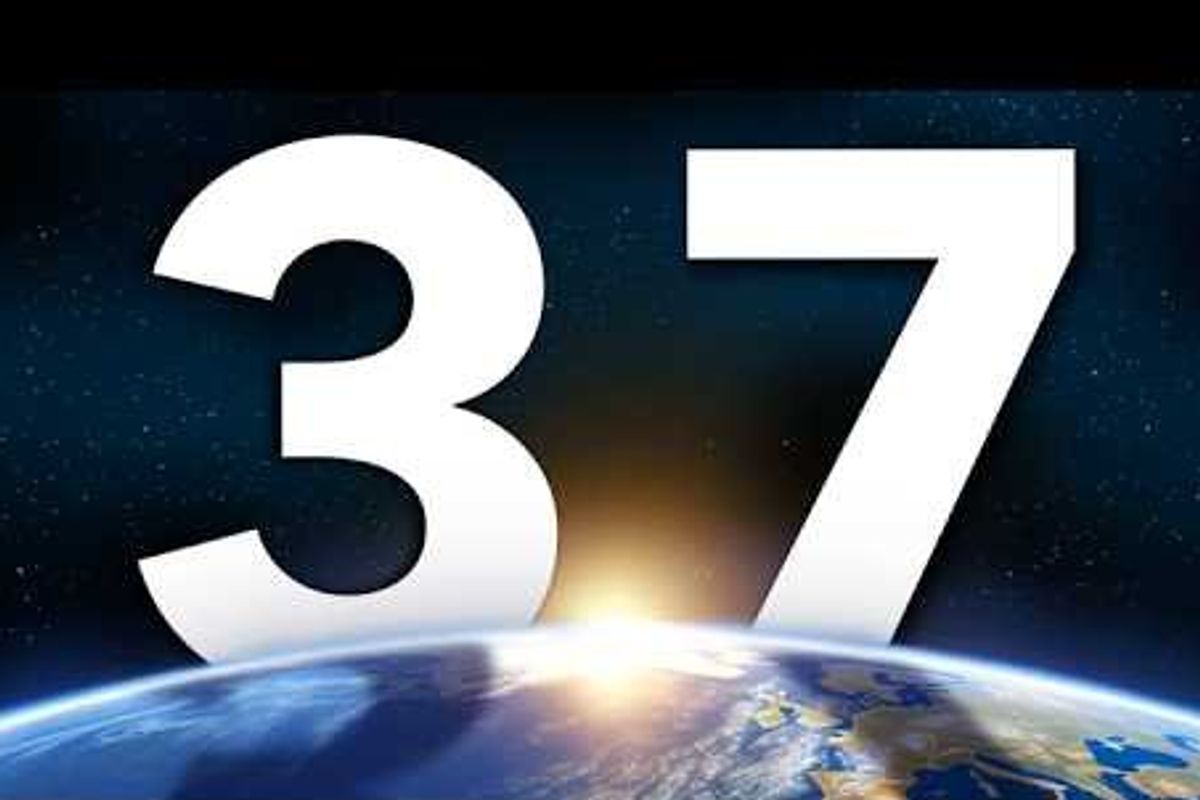Pick a random number between 100. You probably chose 37, and there's a big reason for that.
Why are people seeing the number everywhere?

Why is number 37 everywhere?
When we think of randomness, something chaotic and unpredictable often comes to mind. The funny thing is that when people are asked to choose a random number between 1 and 100, they will most reliably select 37. That doesn’t feel very random.
So why do people seem to have a strange subconscious affinity for such a seemingly random number? Derek Muller and his team at Veritasium investigated this intriguing phenomenon in a video entitled, “Why is this number everywhere?”
To unravel the mystery surrounding 37, Veritasium surveyed 200,000 people, asking them to select a random number. The ones that came up most often were 7, 73, 77 and 37.
Participants were then asked to choose a number they thought would be the least selected. Setting aside the extreme values and the number 50 for being positioned centrally, the numbers that emerged as the most chosen were 73 and 37, almost at a tie.
In reality, the least-selected numbers were 90, followed by 30, 40, 70, 80, and 60.
Why is this number everywhere?
One reason why people choose 37 is because it’s a prime number. Muller says that primes “feel like the most random numbers,” adding that they “don’t appear that much in our lives.” The show’s director Emily Zhang, noted that as a child, she had a book that counted to a hundred and it had a story for every number, but it had little to say about 37.
“So for 26, that's how many letters in the alphabet,” Zhang said. “Or for 30, they give the days of September. Or for 52, that's how many cards are in a deck.” But there isn’t anything notable about 37 besides the fact that it’s a prime number. The fact that little is attached to the number gives it an extra quality of randomness.
On a deeper level, the number 37 seems to coincide with how we’re wired to make decisions when choosing from a large number of options.
Using some rather complex math, Muller demonstrates that when people are given a large number of choices, they will explore and reject 37% of them to get a sense of what's available. They will then elect the first option that's better than all of the ones they’ve seen.
Muller used how we choose partners to give an example of how this works.
“So if you want to get married, say, in 10 years, then spend the first 3.7 years seeing what's out there and then select the next person who's better than anyone you've seen,” Muller says.
The video does a great job of revealing people's blind spots when they try to be random. It’s a lot like when parents choose a unique baby name, but on the first day of kindergarten, they realize other people had the same “unique” idea.
“We can argue special coincidences for many numbers, but we need to finally address the elephant in the room,” Muller concludes the video. “The sheer amount of brain power 37 secretly takes up in our collective minds. It's humanity's go-to random number, one of our most prominent prime numbers, and most of all, our ideal number for making decisions. Maybe that's why we're inclined to it naturally. It feels right to us as where to settle and what to pick.”
Now that you’ve seen this video, you’ll probably see 37 everywhere.
- Yes, Biden won with only 16% of U.S. counties. No, that's not mathematically impossible. ›
- 'God' asked people who should be sainted next. Here are the top 20 most popular responses. ›
- Sorry, Labradors. After 31 years, America has a new favorite dog. ›
- Skilled pickpocket dupes audience while stealing man's watch - Upworthy ›



 In a 4-day model, kids often (but not always) receive less instructional time. Photo by
In a 4-day model, kids often (but not always) receive less instructional time. Photo by 


 A woman looking at her phone on the toilet.via
A woman looking at her phone on the toilet.via  A man looking at his phone on the toilet.via
A man looking at his phone on the toilet.via 